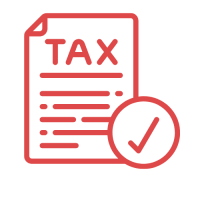With many super funds currently being closely examined to ensure that they are meeting industry standards, you’ll want to make sure that your super is performing satisfactorily with your potential retirement. People tend to want to know how to compare super funds.
However, no matter the kind of super fund you opt for, you will be subject to fees. Understanding how these fees work and the difference they can make to your nest egg is vital.
Two factors that you need to consider:
- the kinds of fees being charged; and
- the rate of fees you pay.
Opting for a super fund based on these two factors might see you retire with a far more plentiful sum.
There are various types of fees that your super fund provider may charge you.
The two things to do if you want to investigate your current fees:
Firstly, Google your fund’s product disclosure statement and scroll through to the fees section. The key pieces of information that you will be looking for are:
- an explanation of what the fees are;
- how the fees are applied; and
- how often the fees will be incurred.
Secondly, you should log in to your super fund account and note all the fees charged. Investigate how closely these correspond and correlate with the product disclosure statement.
If you feel there are discrepancies, do not hesitate to contact your super fund or financial advisor and ask for clarification. It is worthwhile to do your research and compare the fees charged against other super funds. Being complacent and not paying attention to your super is possibly costing you more in the long run.
Common fees:
– Administration fees: fees covering the costs of operating and managing your super fund account.
– Exit fees: fees incurred for leaving or switching super funds. While this is a common fee, not all funds charge it.
– Investment fees: fees incurred due to the managing costs of the investments. These fees can fluctuate, depending on the investment.
– Activity-based fees: fees incurred for any activity you require your super fund to perform outside of the ordinary management of your account, such as a family law split fee.
Another major factor contributing to how much you accumulate in your super account throughout your working life is the rate of fees you pay. Some funds offer much lower fees than other funds, which can create a difference of hundreds of thousands of dollars when it comes time to retire.
Generally, the categories of funds are low super fees, medium super fees, and high super fees. You will need to weigh up your options and decide whether you want a fund that charges low, medium or high super fees. While it seems like the best option to choose a fund with low super fees, these funds do not necessarily perform as well as medium or high fee super funds, meaning you will not get as good of a return on your investment.
Speaking with your superannuation provider or a financial advisor specialising in superannuation may be the right choice for you if you wish to learn more about this topic. Remember – action will beat inaction and allow you to grow your super with less delay.













